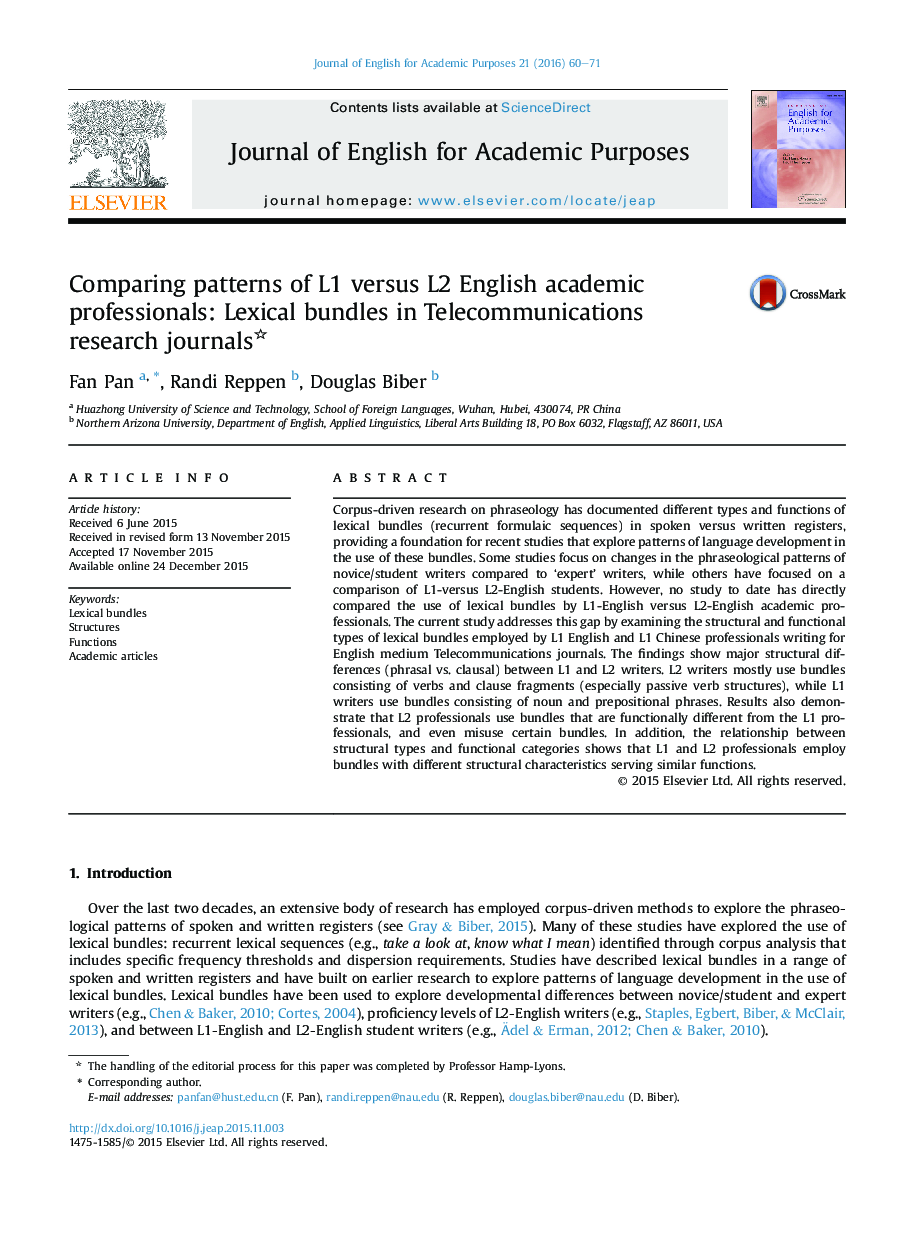| Article ID | Journal | Published Year | Pages | File Type |
|---|---|---|---|---|
| 360162 | Journal of English for Academic Purposes | 2016 | 12 Pages |
•The findings show major structural differences between L1 and L2 writers.•L2 writers prefer clausal bundles, while L1 writers prefer phrasal bundles.•L2 writers use bundles that are functionally different from L1 writers.•L1 and L2 writers use different structural bundles to serve similar functions.
Corpus-driven research on phraseology has documented different types and functions of lexical bundles (recurrent formulaic sequences) in spoken versus written registers, providing a foundation for recent studies that explore patterns of language development in the use of these bundles. Some studies focus on changes in the phraseological patterns of novice/student writers compared to ‘expert’ writers, while others have focused on a comparison of L1-versus L2-English students. However, no study to date has directly compared the use of lexical bundles by L1-English versus L2-English academic professionals. The current study addresses this gap by examining the structural and functional types of lexical bundles employed by L1 English and L1 Chinese professionals writing for English medium Telecommunications journals. The findings show major structural differences (phrasal vs. clausal) between L1 and L2 writers. L2 writers mostly use bundles consisting of verbs and clause fragments (especially passive verb structures), while L1 writers use bundles consisting of noun and prepositional phrases. Results also demonstrate that L2 professionals use bundles that are functionally different from the L1 professionals, and even misuse certain bundles. In addition, the relationship between structural types and functional categories shows that L1 and L2 professionals employ bundles with different structural characteristics serving similar functions.
Graphical abstractComparison to previous research of the distribution of structural types.Figure optionsDownload full-size imageDownload as PowerPoint slide
